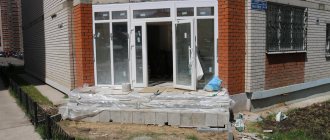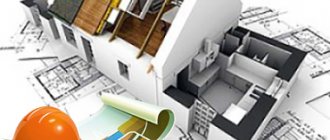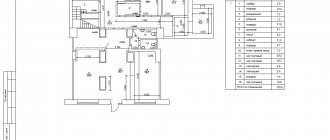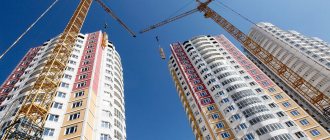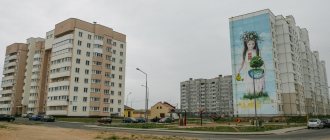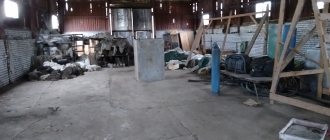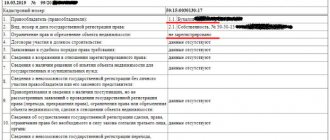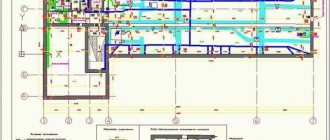Running a business often requires financial investments in commercial real estate and its redevelopment. The purpose of the premises, technical characteristics, location of utilities, and expansion of the area may be transformed. Regardless of its scale, the redevelopment of non-residential premises must be carried out in strict accordance with the law. Before starting construction work, it is necessary to determine exactly what the re-equipment of commercial real estate is, in what cases permission is required and what liability is provided for unauthorized work without notifying the relevant authorities.
The concept of room redevelopment
The procedure for transforming commercial property and introducing the resulting changes into technical documentation is regulated by the Housing Code of the Russian Federation, technical rules and regulations.
According to legal provisions, redevelopment of premises includes changing its internal structure. Redevelopment of real estate involves the transfer of utility networks, including electrical equipment, water supply, etc.
data-matched-content-ui-type=”text_card”
Important! Redevelopment of non-residential premises can be carried out only after obtaining the appropriate permits. Otherwise, it is considered illegal, for which the perpetrators will be held accountable
Commissioning
After all approvals have been received and the work has been carried out, the last stage remains - commissioning. The task of such actions is to obtain a document that will confirm that a non-residential premises with changes made to its design can be used and does not pose a danger to people.
A special commission is conducting an inspection and its final verdict will be the final stage in the restructuring carried out. With this document, you can contact a cadastral engineer to prepare the technical plan required to make adjustments to the cadastral registration data. After this, all procedures are considered completed and legal.
What the law says
According to housing legislation, refurbishment of real estate should not change its functional purpose. Otherwise, the reformation must be taken into account in the documentation for the real estate. For example, if a former cafe needs to be converted into a fitness center, prior approval will be required.
Redevelopment of non-residential premises will require prior approval in the following cases:
- transfer, installation, combination of walls and (or) partitions;
- shift in the location of “wet” areas (bathrooms, sinks, etc.);
- transformation (transfer, establishment, destruction) of auxiliary zones. These include balconies, stairs, windows, loggias, porches, etc.;
- changing the configuration of window openings;
- installation of equipment that requires the connection of utilities (showers, sinks, gas or electric stoves, etc.);
- transformation of the floor base, if it entailed an increase in the load on the load-bearing parts of the building;
- demolition or installation of new flights of stairs.
When re-equipping a real estate property, damage to the strength or demolition of load-bearing structures, deterioration of appearance, destruction of fire-fighting devices is prohibited
In accordance with the legal act, the preliminary approval procedure is a multi-stage process that includes several stages. It is necessary to collect a package with official documents and submit it to the authorized body.
Where to contact
The procedure for applying for permits for reconstruction is regulated by regional legislation, so the procedure may differ slightly in different regions of the Russian Federation. An application for changing the layout of non-residential premises and the attached package of documents should be addressed to:
- housing inspection;
- administration of an urban or rural settlement.
In some regions of Russia, the authorized body for issuing a permit is the BTI.
Legislation, the role of the Town Planning Code
The basic law that regulates the process of remodeling non-residential premises is Housing Code Art. 26. In addition, the specifics of the work are regulated by the laws of regional authorities.
Among other government documents:
- Town Planning Code of the Russian Federation. His Art. 1 it shows the differences between redevelopment and other types of work in construction.
- Temporary regulations for the approval of design documentation for redevelopment.
- The Code of Administrative Offenses, which determines the amount of fines for violating the rules for approval and carrying out redevelopments.
- Code of Administrative Procedure. He talks about the procedure for legalizing redevelopments.
When permission is not required
Conversion of a real estate property does not always require prior permission. Actions for redevelopment and reconstruction of non-residential premises that do not relate to the alteration of the internal structure of the building and do not change its total area do not require prior approval.
Types of work that you can do yourself without permission:
- installation of split systems;
- changing heating radiators;
- plastering walls and interior decoration;
- replacement of toilets, taps, mixers, siphons, bidets, bathtubs, etc. without moving them;
- installation of a hood;
- glazing of balconies and loggias;
- replacement of flooring;
- refurbishment of in-wall cabinets;
- replacement of windows leaving their configuration and size unchanged.
Alteration that does not require consent
Minor changes during redevelopment do not require approval. A permit is not required for the following events:
- Cosmetic repairs, interior improvements (plaster, cladding) that do not affect the load-bearing capacity of the elements.
- Replacement of plumbing fixtures and pipes without changing their location and technical characteristics (for example, pipes of the same diameter, but plastic).
- Installation or dismantling of built-in furniture that is not recorded in the technical certificate of the room.
In other words, there is no need for approval if the arrangement does not involve a violation of the original floor plan and does not affect the safety and operational parameters of the house.
Conditions for legalization
To introduce the resulting changes to the technical documentation, full compliance with the legal restructuring procedure and all stipulated sanitary norms and rules is required. The conversion of a commercial property will be considered completed upon receipt of a certificate of completion from the selection committee.
To comply with the procedure, a preliminary technical design must be drawn up. If all documentation complies with legal requirements, then the chance of obtaining approval from the regulatory authority will be quite high.
Conditions that the refurbishment of real estate must meet:
- strict compliance with all sanitary standards and construction regulations;
- absolute compliance with fire safety requirements;
- no threat to the health or life of others.
A project for the reconstruction of a real estate property must be drawn up by an organization that has a special license and is part of the SRO of designers
Unauthorized
Often, the owner or tenant of the property carries out reconstruction of the property without prior approval of the work from the authorities. In the case of unauthorized conversion of real estate, you will most likely have to pay a fine, but it is still necessary to complete documentation.
It will be possible to legitimize the work carried out only on the condition that no actions prohibited by law were carried out. If modifications to the technical documentation are carried out after the fact, then you will still have to order a preliminary project.
In some cases, it is allowed to legalize changes to a real estate object based on a sketch. This is only possible if the reconstruction is minor, does not involve the demolition of walls, blocking of openings or a radical transfer of communications, and does not affect the rights of use of other owners or tenants.
Responsibility
Unauthorized reconstruction in non-residential premises is considered to be actions without consent from the authorized body or in violation of the approved project. The guilty person will be held liable in accordance with the Housing Code of the Russian Federation and the Code of Administrative Offenses of the Russian Federation. All reformations made will need to be liquidated and the property returned to its original condition.
If the Housing Inspectorate's requirements are not met, the property may be sold after a court hearing. Consequences can be avoided if the reformation does not violate the rights of other citizens or legal entities located in this building. But the court will consider the legality of the changes made, and based on the results of the trial, an appropriate decision will be made.
In addition, you will need to pay a fine, the amount of which will depend on the status of the offender. According to Article 7.21 of the Code, penalties for unauthorized reformation in a private house for a citizen can range from 1 thousand rubles. up to 1.5 thousand rubles. For reconstruction without permission in an apartment building, a citizen can pay from 2 thousand rubles. up to 2.5 thousand rubles. For legal entities, the fine can range from 40 thousand to 50 thousand rubles.
How can illegal redevelopment be detected?
No one will come to you just to check, but neighbors may become interested in the constant noise and mountains of bulky garbage and complain about the construction site. The inspector will pay a visit if the rights of other residents are violated. For example, you refurbished the home to your taste and took away part of the common area, or flooded the people living below you due to the expansion of the bathroom into the residential area. In this case, another possible consequence is compensation to neighbors.
The inspectorate also checks when cracks appear inside or outside the building. If it turns out that you are at fault - a fine and an obligation to legalize or eliminate the activity. Other common situations in which the problem is detected:
- Sale. You can sell such real estate, but there is one caveat. Conversions are the responsibility of the buyer, making them difficult to find. In this regard, the seller often has to underestimate the price.
- Mortgage. Such difficulties may arise when purchasing a renovated apartment on credit.
- Organization and preparation
7 official requirements you should know about before repairs so as not to break the law
Coordination of redevelopment
There is a whole process that needs to be followed to get a commercial property redevelopment approved. The special procedure for approval of work consists of several stages:
- drawing up a preliminary project. To do this, you need to contact the design office;
- if you do not have a technical passport for the property, you will need to obtain it from the BTI;
- collection of additional documents provided for in Art. 26 Housing Code of the Russian Federation;
- if the tenant plans to carry out the reconstruction, permission from the owner must be obtained;
- submission of official papers and the corresponding application to the authority issuing the permit (Administration, Housing Inspectorate or BTI). Documents can be submitted to the Housing Inspectorate through the MFC.
After receiving permission, construction work begins.
Refusal to redevelop real estate can be appealed in court
Upon completion of construction work, it is necessary to call the acceptance committee. Her authority includes checking the final result for compliance with its design and current standards. Based on the results of the inspection, the owner is given a certificate of completion of work, which is transferred to the BTI. All modifications made are included in the technical passport.
Documents you will need
The main package for submission to various authorities for approval. Certain forms can be added to it, but the basis of the package is as follows:
- Application for redevelopment.
- Documents confirming the right to use the premises: registered property, lease agreement.
- Redevelopment project.
When all approvals have been completed, conclusions (permits) of the relevant authorities are added to the package for obtaining permission for redevelopment. Among other documents:
- Technical plan prepared by a cadastral engineer.
- Extract from the personal account.
- Floor plan.
In some cases, it is allowed to collect and submit documents after the actual work has been carried out, but such actions can be legitimized if the following conditions are met:
- The redevelopment was carried out in accordance with sanitary and building fire regulations.
- The actions taken are permitted by law.
It is worth understanding that it is unlikely that you will be able to escape responsibility for violating the procedure for registering redevelopment and its implementation. But it’s better to take all the necessary steps to legalize the conversion, because the longer you wait, the more serious the consequences will be.
Important! If the actions taken go beyond the legal framework, even the best lawyer will not help solve the problem with legalization.
Redevelopment of non-residential premises
The procedure for refurbishment of commercial real estate may differ depending on the premises in which the desired object is located. If the non-residential property is located in an apartment building, then you need to coordinate your actions with the Housing Inspectorate. Since the reconstruction of the house may affect the rights of residents of neighboring apartments, it is necessary to obtain their consent for future work.
When drawing up a project, you should remember that it is prohibited to carry out reconstruction, as a result of which access to communications or the common property of a high-rise building will be difficult. All interests of residents must be respected. When reconstructing commercial space in an apartment building, a number of conditions will need to be met:
- arrange a separate entrance;
- install a ventilation system.
It will be easier to change the structure of commercial real estate in a residential building, especially if citizens do not live in it. It is necessary to convert a residential property into a non-residential property, if this was not done before its reformation.
If the commercial space is on the second floor, there should be no residential apartments below it. If this condition is not met, it will be impossible to obtain consent.
To convert commercial property into a non-residential building, you do not need to obtain permission from the Housing Inspectorate. Only the consent of the owner is required if the tenant wants to carry out the work, or a power of attorney if the preparation of official papers is entrusted to another person.
Redevelopment of common areas in an apartment building
According to housing legislation, common property includes:
- landings and flights;
- technical floors and attics;
- basements with utilities;
- corridors;
- elevators;
- other places not owned by individual owners;
- roof of the house;
- the plot of land on which the house stands, including a site and landscaped area.
Legal changes to common areas require the consent of all residents and approval from the Housing Inspectorate or HOA. If there are many tenants, a general meeting is held, following which an appropriate decision is made.
For a meeting to be legitimate, the total number of those gathered must be at least 2/3 of the number of people living in the house. More than 50% of participants must give approval. The received protocol on the consent of the residents must be certified by a notary. In the future, the procedure for restructuring common areas is identical to the generally accepted procedure.
Order
The procedure for approving and legitimizing redevelopment depends on its complexity and volume. When it is carried out in the MKD, the following main stages are distinguished:
- obtaining the consent of residents (decision of the general meeting of owners);
- preparation of legal and technical documents;
- obtaining permission for reconstruction;
- development of a redevelopment project and its approval by relevant organizations;
- implementation of redevelopment;
- making changes to technical documentation and registration.
Where to contact?
The first stage of the redevelopment is the preparation of the necessary documents:
- Initial technical documentation. A floor plan with an explanation will be required. It includes an extract from the technical passport of the apartment building in Form 1A and a certificate in Form 5, documenting the technical condition of the premises. These documents are issued by the BTI upon request.
- Submitting an application for redevelopment. It is sent to the regional office of the technical inventory service. His employee must put the appropriate mark in the cadastre and technical passport.
- Legal documents. The owner of the premises should contact the state registration authorities and obtain a certificate of ownership of real estate. It is issued after receiving the specified technical inventory mark.
If the apartment building is specially registered by the municipality, then the application for redevelopment is submitted to the city department of architecture.
How to develop a project?
The redevelopment project is a set of documents with a work plan based on the results of a survey of the technical condition of the facility. It can only be developed by an organization with SRO approval or the organization that authored the house project. Design must be preceded by an engineering survey with the issuance of a conclusion on the condition of the load-bearing elements.
The project must contain the following sections:
- technical characteristics of the room and the entire building with information about load-bearing elements, walls, ceilings and ventilation systems;
- general characteristics of the house and premises (number of floors, area, number of rooms, etc.);
- specific measures for the reconstruction of the premises (architectural and construction solutions);
- diagram of engineering communications and their characteristics.
The project necessarily contains fire safety measures. A floor plan and photographs of the refurbishment facility are provided. Specific work related to:
- architectural changes;
- changing the area and number of rooms;
- redevelopment of the heating system;
- changes in engineering communications;
- new electrical project, etc..
The cost of developing a plan is from 15,000 rubles.
We do not recommend completing the documents yourself. Save time - contact our lawyers by phone:
8 (800) 302-76-94
How to coordinate work with government agencies?
To carry out redevelopment, the following approvals are required:
- Consent of at least 2/3 of the residents of the apartment building, if common property is affected. In many regions, agreement has also been established with the management company of the house.
- Rospotrebnadzor. The project is sent here first.
- Conclusion of the architecture department. It is necessary when carrying out work on the facade and organizing a separate entrance.
- Conclusion of the Ministry of Emergency Situations. First of all, this concerns fire safety measures.
- Sanitary and epidemiological station for changes in bathrooms and sewage system.
Where to submit documents?
After developing the project and receiving all the necessary documents, an application for redevelopment is submitted to the housing inspectorate of the municipality or self-government body of the locality. The application is accompanied by permission from the control and supervisory authorities, as well as a reconstruction project signed by its developer and approved by the BTI.
Deadlines for obtaining permission from the interdepartmental commission
To check the safety and legality of redevelopment of non-residential premises, special interdepartmental commissions (IMC) are created. In essence, this is a state territorial body under the municipality, composed of specialists from several interested departments. In large cities this is a permanent body, and in small towns it is organized as needed.
In addition to approving projects, the IEC reviews illegal reconstructions and outlines measures to eliminate violations. A commission is created and its work is regulated in accordance with Decree of the Government of the Russian Federation dated January 28, 2006 No. 47, Decree of the State Committee for Construction of the Russian Federation dated September 27, 2003 No. 170 and regional legislative acts.
Is it possible to carry out unauthorized redevelopment of non-residential premises and then legalize the alteration, we discussed in this article.
Coordination of the redevelopment project at the Moscow Intercontinental Complex is a mandatory step. The property owner's application is transferred from the housing inspection. All attached documents are checked and the facility is inspected. A positive decision is recorded in an act, which is the basis for permitting redevelopment. The refusal is regulated by Chapter 4. Article 27 of the Housing Code of the Russian Federation.
Legal grounds for refusal are considered to be incomplete provision of documents or their incorrect execution, as well as the issue going beyond the competence of the International Commission for Internal Affairs. Such a decision can be challenged in court.
45 days are allotted for consideration of the issue of redevelopment . Within 7 days after a positive decision is made by the IMC, permitting documents must be issued. The refusal must be issued within 3 days after the commission begins its work.
We talked in detail about the procedure for obtaining permission to redevelop non-residential premises in this material.
Price
On average, development and approval of a redevelopment project will cost:
- If the work is planned without damaging the load-bearing elements, the cost is from 45 thousand rubles within 40-75 days.
- The same with violation of load-bearing structures - from 70 thousand rubles for 2-3 months.
- Redevelopment at the exit to the facade and equipment of a separate entrance - from 90 thousand rubles for 2-4 months.
What is the price
The costs of completing documentation or registering unauthorized restructuring depend on the scale of the work and the number of authorities through which it will be necessary to go. The price may vary depending on the volume of documents required. Possible expenses:
- receiving advice;
- drawing up a technical project;
- collection of necessary documentation and permits from the sanitary and epidemiological service, fire safety, Housing Inspectorate, etc.;
- obtaining a technical passport if it is missing;
- submitting documents to the authority issuing permission to make changes;
- payment of a fine if unauthorized construction was carried out.
If the package of necessary documents is incomplete, or is not compiled in accordance with legal requirements, the procedure will need to be completed again
To avoid additional costs and not waste time visiting government organizations, it is better to hire an experienced specialist. A qualified lawyer will help shorten the procedure for obtaining technical documentation, defend the applicant’s rights in all bureaucratic authorities and save money on unjustified expenses.
